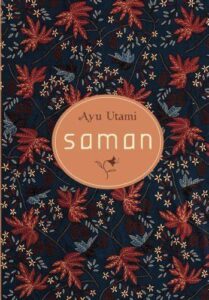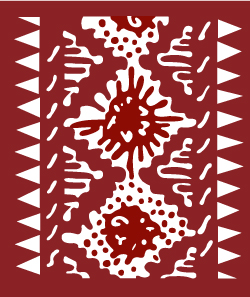August 2024 - Saman

Saman by Ayu Utami
translated into English by Pamela Allen
After our July break, it was great to get back together for our August book discussion. Our Book Group 2 met at the Coffee Club in Kinokuniya KLCC on the 30th of August. We had an interesting discussion with input from seven members.
Not having read books by Indonesian authors was one of the reasons why I looked forward to this book. I do realize that translations might lose the nuance and flow of the original language, but I’d like to think that Pamela Allen did her best.
Ayu’s novel is divided into four chapters. It is good to know from the onset that Saman used to be a teacher in a school and these three women used to be his students. The first one introduces us to Laila Gagarina and her married lover Sihar Situmorang and Jasmin Moningka (a childhood friend of Laila who is a lawyer doing pro bono work) and of course, Saman who was previously known as Athanasius Wissaggeni a Catholic priest. Chapter two is focused on Saman and his story which I enjoyed the most. Chapter three introduces us to Shakuntala a friend of Laila. Chapter four has Saman writing to his father and to Yasmin about his escape to New York as a political refugee, a glimpse into how he got out of Indonesia (his sexual escapade with Yasmin), and the rest of the chapter spirals into a kind of sexual desires and sex text except its on paper.
I was interested in the political period in which it was written giving us a glimpse of the end of the Suharto period. As Jennifer put it, this was “an important period as the people of Indonesia had been suffering from the Asian Financial Crisis. Suharto’s regime was filled with rampant corruption and economic instability. Corruption, and economic problems, including food shortages and mass unemployment led to the resignation of President Suharto who had been in power for 32 years.” Ayu Utami’s Saman touches on some of the sufferings of the people and does it eloquently.
On the downside, this book crams a lot into its 180 pages, it attempts everything at once. The writing style moves from the narrative, and descriptive to epistolary (using letters). The first and third chapters as well as the flights of sexual fantasy from some of the characters were annoying and led to a lower score of the book for me. The themes that begged for space to develop especially on the rampant sexual abuse, exploitation of the poor villages, the repression, and acts of violence against women, and the taboos imposed by culture and religion were not enough to save this book for me.
Our group rated the book 5.5/10
Santhi Nair-Moine
